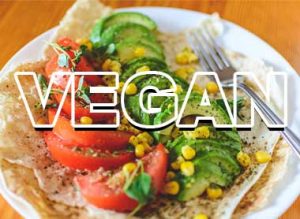
We often hear about the importance of vitamins and minerals, but there’s a lesser-known group of compounds that play a vital role in supporting our well-being – bioflavonoids, commonly referred to as Vitamin P. In this comprehensive guide, we will delve deep into the world of Vitamin P, exploring its sources, benefits, and the impact it has on our overall health.
1. Understanding Vitamin P: An Introduction
Vitamin P, often misunderstood as a standalone vitamin, is, in fact, a captivating group of bioflavonoids that play a pivotal role in supporting our health by synergistically enhancing the actions of vitamin C within the body. These remarkable compounds are not only ubiquitous in nature but also present in a diverse array of sources, ranging from the colorful bounty of fruits and vegetables to select beverages that grace our tables. As we embark on a journey into the world of Vitamin P, it becomes evident that its significance extends far beyond its categorization as a vitamin, offering a wealth of health benefits that underscore its essential role in our well-being.
The story of Vitamin P unfolds as we delve deeper into its various aspects and the fascinating ways it interacts with vitamin C. This dynamic relationship between the bioflavonoids and vitamin C is akin to a harmonious duet, where each component complements the other’s performance. When consumed together, vitamin P aids in the absorption and utilization of vitamin C, optimizing its effectiveness in countless physiological processes. From bolstering the immune system’s defenses to promoting healthy skin and tissue repair, this cooperative partnership is central to maintaining overall health and vitality.
2. Types of Bioflavonoids in Vitamin P
- Flavonols: Known for their antioxidant properties, flavonols are commonly found in onions, kale, and tea.
- Flavones: Present in parsley and celery, flavones exhibit anti-inflammatory effects.
- Anthocyanins: Found in berries and red cabbage, anthocyanins contribute to heart health and have anti-cancer properties.
3. The Health Benefits of Vitamin P
- Powerful Antioxidant Properties: Vitamin P acts as a potent antioxidant, protecting our cells from oxidative stress and reducing the risk of chronic diseases.
- Cardiovascular Support: Bioflavonoids promote heart health by improving blood circulation and lowering blood pressure levels.
- Anti-Inflammatory Effects: These compounds help in reducing inflammation, making them beneficial for individuals suffering from inflammatory conditions.
- Boosting Immunity: Vitamin P enhances the immune system, making the body more resilient against infections.
- Skin Health: Bioflavonoids contribute to skin elasticity and protect against UV radiation, keeping the skin youthful and healthy.
4. Food Sources of Vitamin P
- Citrus fruits: Oranges, lemons, and grapefruits are rich in flavonoids, especially hesperidin.
- Berries: Blueberries, strawberries, and raspberries contain high levels of anthocyanins.
- Green Tea: Abundant in catechins, green tea offers a substantial dose of flavonoids.
- Onions and Garlic: Rich in quercetin, these vegetables provide anti-inflammatory benefits.
5. Incorporating Vitamin P into Your Diet
- Colorful Plate: Consume a variety of colorful fruits and vegetables to ensure you get a mix of different bioflavonoids.
- Herbal Teas: Enjoy herbal teas like chamomile and hibiscus, which are packed with flavonoids.
- Raw is Best: Whenever possible, opt for raw fruits and vegetables as cooking can sometimes lead to a loss of these valuable compounds.
6. Conclusion
Incorporating Vitamin P into your diet can significantly contribute to your overall health and well-being. By understanding the types of bioflavonoids and their sources, you can make informed choices about your nutrition, leading to a healthier life.
Frequently Asked Questions
Q1: What are the best sources of Vitamin P?
A1: Citrus fruits, berries, green tea, onions, and garlic are excellent sources of Vitamin P.
Q2: How does Vitamin P benefit skin health?
A2: Vitamin P enhances skin elasticity and protects against UV radiation, promoting youthful and healthy skin.
Q3: Can Vitamin P help in reducing inflammation?
A3: Yes, bioflavonoids in Vitamin P have anti-inflammatory effects, making them beneficial for various inflammatory conditions.
Q4: Are there any side effects of consuming Vitamin P-rich foods?
A4: There are no significant side effects associated with consuming Vitamin P from natural food sources. However, consult a healthcare professional if you have concerns.
Q5: Can Vitamin P supplements be taken?
A5: While it’s best to obtain nutrients from natural sources, Vitamin P supplements are available. Consult a healthcare provider before taking any supplements to determine the appropriate dosage.





